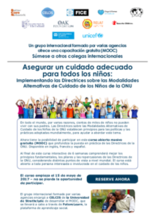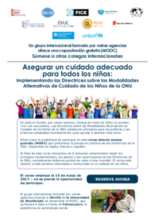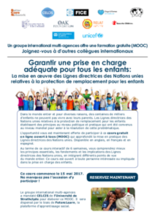Demographic Data
|
Sources: World Bank, UNICEF, UNDP HDR 2015, DHS 2014 |
Displaying 9601 - 9610 of 14399
Lending a helping hand in countries with poor health infrastructure is usually well intentioned—but it can cause serious harm.
This study aimed to describe caregivers' understandings of, and responses to, unsettled infant behaviours in Vietnam and their family caregiving contexts.
This Australian study was designed to investigate the factors that contributed to the education of academically successful ex-care women with the intention that the findings might inform current practice to promote the educational achievement of children in care contexts.
In this video, Florence Martin & Delia Pop sit down together to discuss the concept of “gatekeeping” in relation to children’s care, the role it plays in ensuring informed and appropriate decisions about children’s care, and how it operates in practice in different contexts and stages.
A report by the Australian Institute of Family Studies found that stay-at-home fathers still spend slightly less time on childcare than their working wives.
Un grupo internacional formado por varias agencias ofrece una capacitación gratuita (MOOC) llamada "Asegurar un cuidado adecuado para todos los niños: Implementando las Directrices sobre las Modalidades Alternativas de Cuidado de los Niños de la ONU."
Un grupo internacional formado por varias agencias (incluyendo BCN, Unicef, Relaf, y otras) ofrece una capacitación gratuita (MOOC) "Asegurar un cuidado adecuado para todos los niños: Implementando las Directrices sobre las Modalidades Alternativas de Cuidado de los Niños de la ONU."
Le MOOC Interorganisations International offre une formation en ligne gratuite. Partout dans le monde, pour des raisons diverses, des centaines de milliers d'enfants ne peuvent pas vivre avec leurs parents.
International Inter-Agency MOOC is offering free online training. All around the world, for many different reasons, hundreds of thousands of children cannot live with their parents.
A researcher studying Romanian children who were institutionalized as infants describes the impact of social deprivation on the developing brain and their similarities to children with autism. This article suggests understanding the autism features appearing in children who were socially deprived as invants may offer insight into autism more generally and hint at interventions to ease them.




